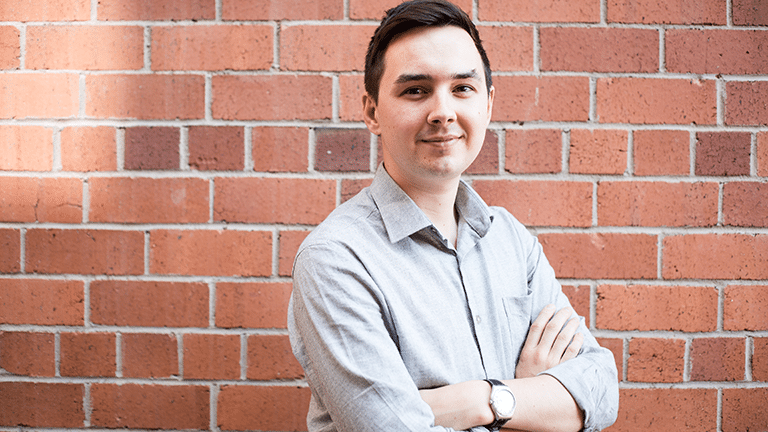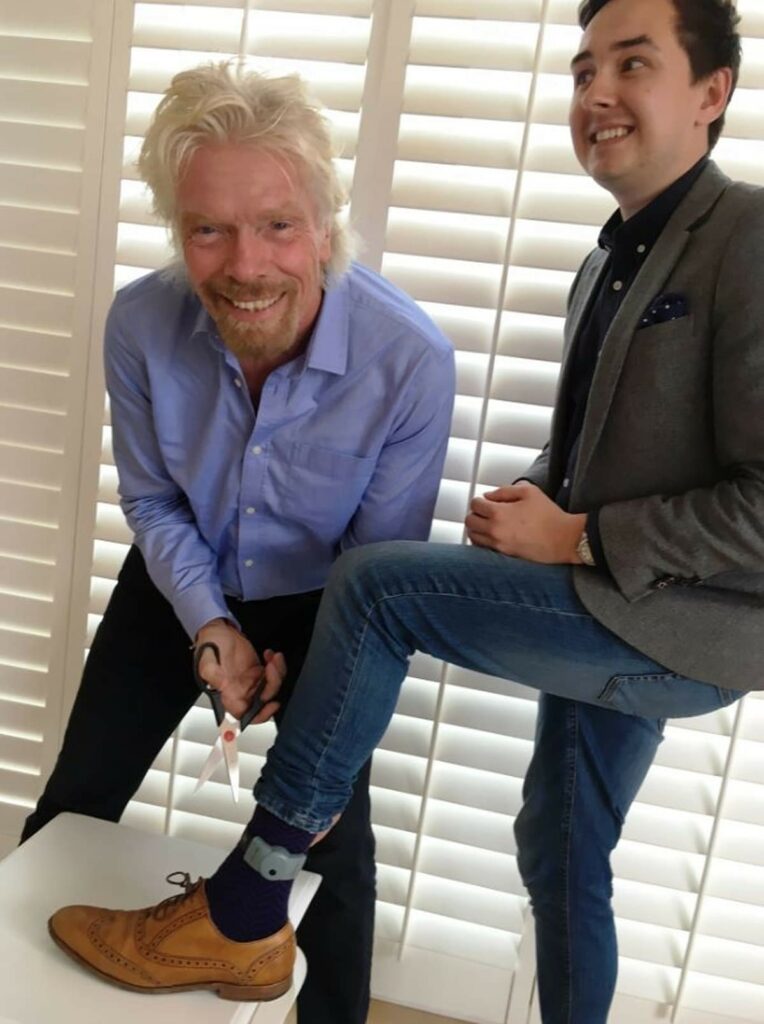A born entrepreneur chooses his path

Jacob Hill was born to be an entrepreneur. He loves making something out of nothing. He can recite an elevator pitch in his sleep. He can court investors and charm a Board. He can draw up a 52-page business plan that makes others believe in his vision. That last one he learned how to do in prison.
His story is one of resilience and redemption, a testament to the power of second chances. As the CEO of Offploy, a groundbreaking social enterprise, Jacob is not just a business leader; he’s a living embodiment of how a person’s past can fuel a positive future.
Jacob is the first to admit that he is a privileged person. His parents are both professionals. He is a young, white, man who had a nice home growing up and a support system, but as a child, he was frustrated with academia and the rules and regulations of school. He was a middling student, and he didn’t excel at sports. By his account, he was neither a math whiz nor a particularly gifted wordsmith.
But Jacob loved business. He was a genius at finding market opportunities in unexpected places. As a child, he would buy sweets from the local shop and sell them for a markup at school. It was such a profitable enterprise that he began to employ fellow students, and by the age of 15, he created a supply chain network of six employees across three schools selling goods under the table ranging from chewing gum to Coca-Cola.
Fresh off the success of his black-market sweets enterprise, his interest in music events led to a festival camping business called The Lazy Camper. This was the first time people invested in his ideas, including Sir Richard Branson, whose team continued to support Jacob even in the formation of his most recent enterprise. After a hot start and early growth, the festival camping business failed to find its footing in the market.
As The Lazy Camper faltered, Jacob turned his entrepreneurial skills toward a new venture: selling drugs. He was arrested and sentenced to 28 months in prison. It was a remarkable turn of events for the young entrepreneur.
“I didn’t want to be a career criminal, but I made every choice to do that. I knew what I was doing. I wasn’t at all led by someone else. After I was arrested, my dad – shocked about my activities – used the word infallible. ‘You think you’re bloody infallible, you think you’re indestructible,’ he told me. And maybe I did, because I was on this rocket rise in all the newspapers and on TV shows at 19 years old.”

While incarcerated, Jacob learned from his fellow inmates’ experiences, and he began to think about what he and they would need for success on the outside.
“It was around month three that I realized maybe I could make something positive of this. I’m like a hammer to a nail, and the nail became starting this business,” said Jacob. For the next six months, he worked on a business plan for Offploy, a social enterprise that is working towards making the world a safer place by supporting people reentering society or who are at risk of offending. The idea was simple yet revolutionary – connect employers willing to offer second chances with individuals eager to turn their lives around.
On day two of his release in 2016, he had his first meeting with an investor, the owner of a recruitment agency, Prestige Recruitment Specialists, who saw the untapped potential in Jacob’s idea.
“That first meeting with Nigel made all the difference because it showed other people that we were worth investing in and gave me runway to figure out what it is we do. Employment was just the beginning,” Jacob asserts, “because we’re no longer just a recruitment agency for people with convictions. We’re a mentoring support service for any socially excluded person who wants to access greater opportunities. We believe this makes society safer.”
Offploy’s approach is multifaceted. They work to mentor socially excluded people to prepare them for employment on the one hand. On the other, they work with employers to support them on best practices for second chance hiring – how to get the culture right, what questions to ask, and how to effectively manage risk.
For example, employers can open themselves up to more talent if they judge the risk inherent to the role instead of the risk of the candidate. Most administrative roles, as an example cited by Jacob, have no risk if fulfilled by an individual with a past citation for driving under the influence.
“We encourage businesses that your first foot forward into this initiative shouldn’t be from a corporate social responsibility or from DEI perspective. It should be from a business perspective. We’re in a talent short market, so do it because it benefits your bottom line.” Ultimately, second chance hiring is inclusive capitalism in action. It’s good for businesses who are looking for talent, it’s good for the people who need a chance to meaningfully participate in the economy, and it’s good for our society.
Recidivism is an all-too-common risk, and Jacob sees in his privilege opportunities that aren’t granted to other formerly incarcerated individuals. “Having a family that I didn’t want to disappoint mattered to me, but other people might not have that. Instead, they might have a group of people that praise them for being entrepreneurial and doing well in the drugs game. They might have a group of people they want to fiercely protect with their life, when they are at risk. They might not have a job to give them focus or a way to pay the bills. So when you think about anyone’s journey, getting out of prison is terrifying.”
By providing job opportunities, employers gain talent and provide a pillar of support toward reintegration in society that reduces recidivism rates, making communities safer and stronger. Embracing second chances fosters a sense of belonging and dignity for individuals seeking to rebuild their lives.
Jacob’s final words say it best: “If we as a society want to judge prisoners, we should only do that once.”
View Jacob’s Council profile page.
